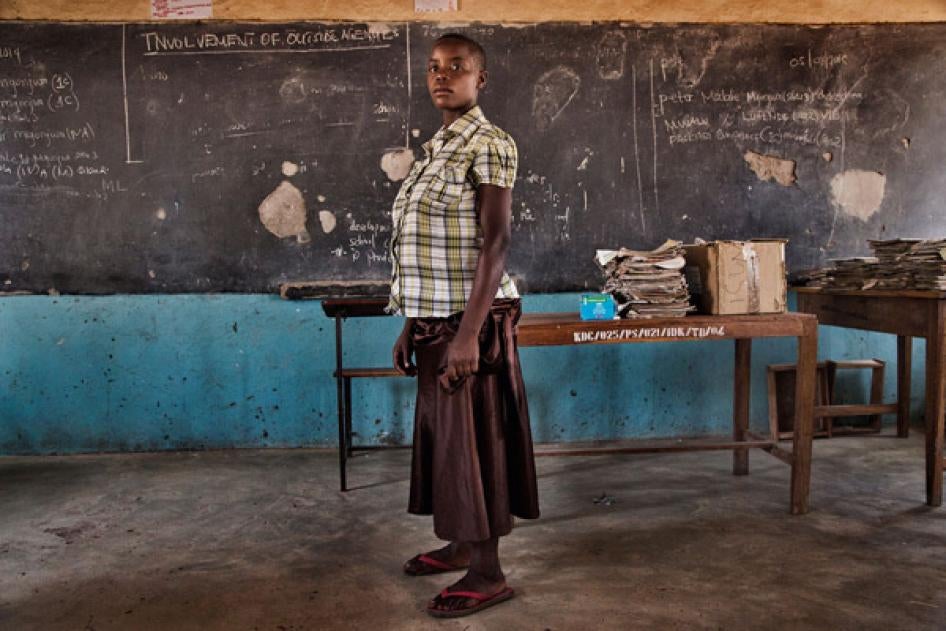Have you ever heard children telling you they want their education to stop when they reach the end of primary school?
I have interviewed hundreds of children in many countries and not a single one of them has ever said ‘enough!’
For many of these children, having their education stopped short at the end of primary school was tragic. For some, external factors such as violence or discrimination forced them to drop out. For children with disabilities, it was about not accessing education on an equal basis with other children. For girls, the sudden onset of puberty often brought the bad news that schools were not safe enough for them or the threat of being married off illegally.
Some turn to hazardous work to scrape together some money to pay for some of their education and support their families.
These stories add up to the 124 million children around the world who are not in primary or secondary school, and hundreds of thousands more who may physically be in school but not getting a quality education. They each represent a government’s failure to guarantee the right to education.
Is the problem with the law? Does the right to education fall short of protecting the right of all children to go, not just to primary, but also secondary school?
It is the wrong question
The evidence we have gathered over the years suggests this is the wrong question to ask.
The right to education—protected in more than five international United Nations treaties, legally binding on any state that ratifies them —provides the strongest guarantee of the right to education at all levels. The UN Convention on the Rights of the Child, the most universally ratified treaty, has celebrated the protection of the right to education for over 25 years. Many governments have constitutional or national protections in place to guarantee this right to all populations.
Governments have a fundamental obligation to ensure primary education is free and compulsory – which in simple terms means the government should ensure all children are in school, with no exceptions.
Perhaps it is less well known that governments also have a clear international obligation to guarantee different forms of secondary education, make them available and accessible to every child and introduce free secondary education or offer financial assistance in case of need.
This year all governments signed up to development commitments that go even further. With the UNESCO-sponsored Incheon Framework of Action and the fourth Sustainable Development Goal on education, governments committed to ensure that all children have 12 years of free education, 9 of them compulsory, by 2030.
This is the right question
The better question is: why have governments not implemented the right to education fully?
As a very first step, governments need to look at the reasons why many primary school children continue to face indirect fees through various expenses — for example paying for uniforms, teachers’ additional salaries, use of buildings, to name a few—that block many from attending. They should address the causes of and remove those financial barriers and, where the practice persists, stop schools from charging illegal fees.
Our evidence shows that the absence of special legal protections to stamp out different forms of discrimination in education – against girls, children with disabilities, LGBT children, children from ethnic or language minorities, among others—continues to drive children out of the school gates.
Among other gaps, explicit obligations to reasonably accommodate children with disabilities, to prohibit early marriages, or to guarantee the right to secondary education, are largely missing in many constitutions or national frameworks.
The Incheon Declaration says: “We acknowledge the efforts made; however, we recognize with great concern that we are far from having reached education for all.”
There will never be “education for all” so long as the right to education—at the secondary as well as the primary level—is not adequately protected in law and practice. The international community should use this global momentum to ensure governments have put in place all the legal measures and rights-respecting development plans to ensure no child is denied primary or secondary education in the next 15 years.










